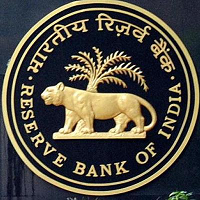All you need to know about Payment banks

All you need to know about Payment banks
Dear Bankersdaily Aspirant ,
The need for banks is on the rise as the customer base of every banks increases multiple fold, Yet the unbanked section in India amounts to a bigger number. Even though there are multiple Banks providing banking solutions to the people of our country , the reach of those banks is limited and still there are places where people don’t use banks for their savings and other things.
Why Payment Banks are formed ?
So RBI formed a Committee on Comprehensive Financial Services for small businesses and Low Income Households headed by Nachiket Mor in 2013 and this committee recommended a new category of bank called Payments Banks. The payment banks is similar to the Prepaid Instrument Provider(PPI). The PPI don’t provide interest for the amount deposited with them , So the committee recommended payments banks will provide interest for the deposits.
So Payment Banks are expected to reach customers mainly through mobile phones rather than the tradional bank branches and it is not limited to the same as the main motive is to provide banking to all the unbanked section.
The Reserve Bank Of India gave in principle license to Eleven entities to launch payment banks based on the findings submitted by the Nachiket Mor committee on August,2015. These entities were given approval based on their financial track record and governance issues.
LIST OF ENTITIES GIVEN LICENSE :
- Aditya Birla Nuvo Ltd
- Airtel M Commerce Services Ltd
Cholamandalam Distribution Services Ltd- Department of Posts
- Fino PayTech Ltd
- National Securities Depository Ltd
- Reliance Industries Ltd
Dilip Shantilal Shanghvi- Vijay Shekhar Sharma
Tech Mahindra Ltd- Vodafone m-pesa Ltd
Out of these there firms gave back their licenses to launch a payment bank and they are Tech Mahindra Ltd, Cholamandalam Distribution Services and Dilip Shantilal Sanghvi.
Currently Airtel Payment Banks , Indian Postal Payment Banks and Paytm Payment Bank have started the operations.
|
PAYMENT BANK |
JOINT VENTURE |
|
Aditya Birla Idea Payments Bank |
Aditya Birla Nuvo Ltd (ABNL) and Telecom major Idea Cellular |
|
Airtel Payments Banks |
Bharti Airtel Ltd and Kotak Mahindra Bank Ltd |
|
India Post payment Banks |
100% Funded by Government |
|
Jio Payment bank |
Reliance Industries Ltd (RIL) and State Bank of India (SBI) |
|
Paytm Payement Bank |
Vijay Shekhar Sharma & One 97 Communications |
“The ‘in-principle’ approval granted will be valid for a period of 18 months, during which time the applicants have to comply with the requirements under the guidelines and fulfill the other conditions as may be stipulated by the Reserve Bank”.
REGULATIONS OF PAYMENT BANKS:
- The minimum capital requirement is 100 crore.
- The stake of the promoter should be atleast 40% for the first five years.
- FDI will be as per the rules of FDI and the voting rights will be regulated by Banking Regulation Act,1949. The voting right is capped at 10% for the shareholder.
-
The Board of Directors should be Independent Directors.
PAYMENT BANKS CAN
- Accept deposits upto 1Lakh which is the maximum limit.
- Demand Deposits & Savings Bank deposits could accepted from individuals and small firms.
- Users can open a savings account or a current account.
- Provide Interest for the deposits invested in the payments banks by the customer.
- Issue Debit Cards & ATM’s .
- Issue Cheque Books.
- Become Banking Correspondent of another bank and offer all products / services which a BC can offer.
- Mobile banking and Internet Banking such as NEFT,IMPS,RTGS.
- Open an app for the payment banks to pay utility bills.
- Provide basic financial services like access to mutual funds, insurance products, pension products, forex services subject to the conditions set by RBI.
PAYMENT BANKS CANNOT
- Issue CREDIT CARDS.
- Issue Loans like personal loans, housing loans , Car loans ,Mortage Loans, etc.
- Undertake lending activities.
- Accept deposits from Non Resident Indians (NRI).
- Setup subsidiaries for undertaking non banking financial services.

The main motive is to give banking solutions to the first time users and also provide them with digital solutions. Since the cost of initiating a new scheduled bank will be high , the payment bank will become a disruptor in that section. This will be a change maker in the industry and this is a bold step in refining the various section in the banking system. Banking will become more prevalent in the rural regions and the unbanked section will become less in the forthcoming days.





